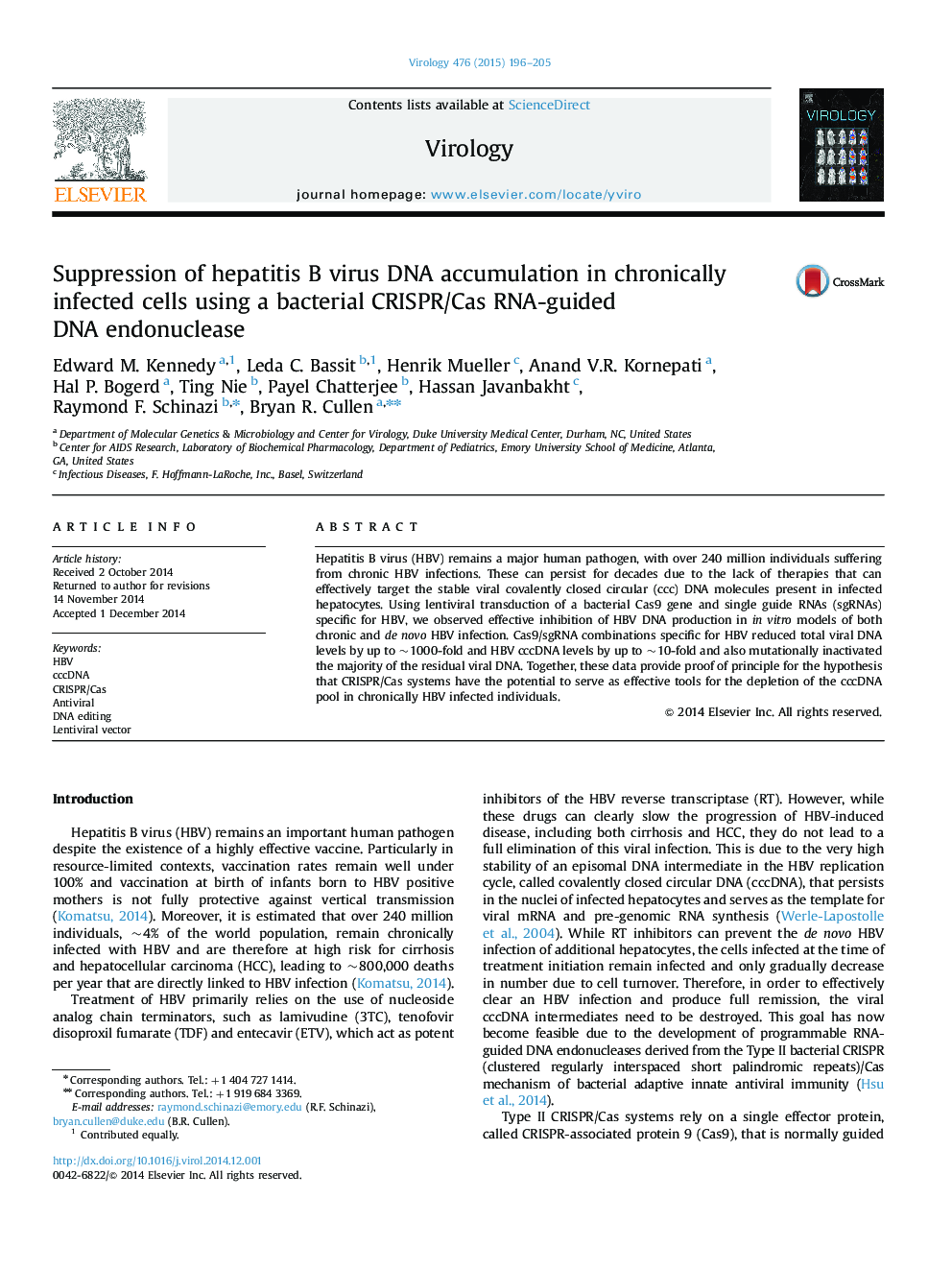| Article ID | Journal | Published Year | Pages | File Type |
|---|---|---|---|---|
| 6139658 | Virology | 2015 | 10 Pages |
Abstract
Hepatitis B virus (HBV) remains a major human pathogen, with over 240 million individuals suffering from chronic HBV infections. These can persist for decades due to the lack of therapies that can effectively target the stable viral covalently closed circular (ccc) DNA molecules present in infected hepatocytes. Using lentiviral transduction of a bacterial Cas9 gene and single guide RNAs (sgRNAs) specific for HBV, we observed effective inhibition of HBV DNA production in in vitro models of both chronic and de novo HBV infection. Cas9/sgRNA combinations specific for HBV reduced total viral DNA levels by up to ~1000-fold and HBV cccDNA levels by up to ~10-fold and also mutationally inactivated the majority of the residual viral DNA. Together, these data provide proof of principle for the hypothesis that CRISPR/Cas systems have the potential to serve as effective tools for the depletion of the cccDNA pool in chronically HBV infected individuals.
Related Topics
Life Sciences
Immunology and Microbiology
Virology
Authors
Edward M. Kennedy, Leda C. Bassit, Henrik Mueller, Anand V.R. Kornepati, Hal P. Bogerd, Ting Nie, Payel Chatterjee, Hassan Javanbakht, Raymond F. Schinazi, Bryan R. Cullen,
